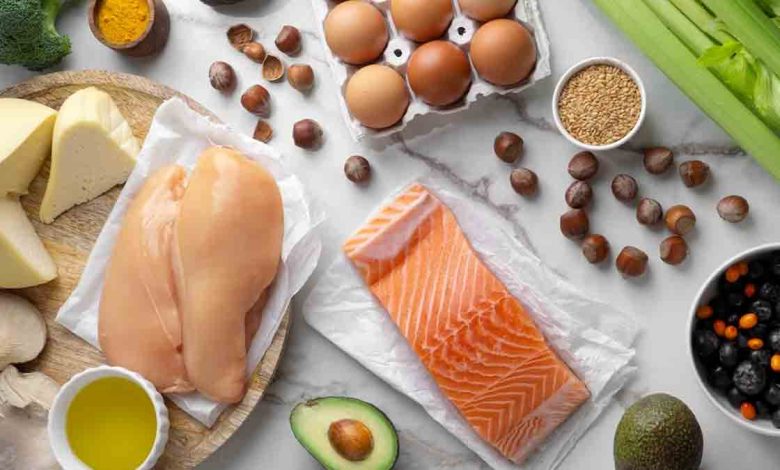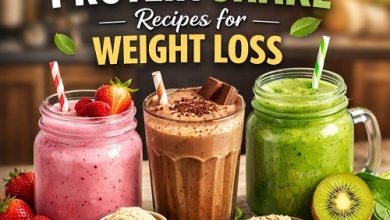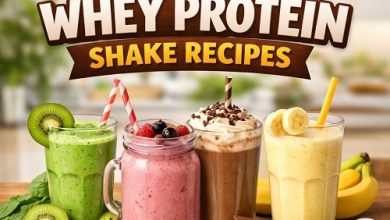7 Omega-3 Superfoods That Can Boost Your Heart, Brain and Mood

When it comes to nutrition, few nutrients have captured as much attention as omega-3 fatty acids. These healthy fats are not only essential for your body’s everyday functions, but they also play a critical role in protecting your heart, fueling your brain, and stabilizing your mood. Despite their importance, many people fail to get enough omega-3s in their daily diet.
The good news? Omega-3s aren’t limited to fish oil supplements. They can be found in a variety of delicious, whole foods—both animal and plant-based. Whether you’re looking to support cardiovascular health, sharpen your memory, or lift your spirits, omega-3–rich superfoods can make a significant difference.
Seven of the best omega-3 superfoods, uncover their health benefits, and show you how to add them to your meals with ease. By the end, you’ll see why these foods deserve a permanent spot on your plate.
Understanding Omega-3 Fatty Acids: Why They Matter
Omega-3s are a family of polyunsaturated fatty acids. The three most important types are:
- ALA (Alpha-linolenic acid): Found mainly in plant sources like flaxseeds, chia seeds, and walnuts. It’s considered essential because the body can’t make it.
- EPA (Eicosapentaenoic acid): Primarily found in fatty fish and seafood, EPA helps fight inflammation and supports heart health.
- DHA (Docosahexaenoic acid): Also found in fatty fish, DHA is critical for brain function, vision, and mental health.
Your body can convert some ALA into EPA and DHA, but the process is inefficient. That’s why it’s important to eat a mix of plant- and animal-based omega-3 foods to cover all your needs.
The Science-Backed Benefits of Omega-3s
Omega-3 fatty acids have been studied extensively for decades. Here are some of their most impressive health benefits:
- Supports Heart Health: Omega-3s lower triglycerides, reduce blood pressure, and decrease the risk of heart disease.
- Boosts Brain Function: DHA makes up a large portion of the brain’s fat and is essential for memory, learning, and cognitive performance.
- Improves Mood & Mental Health: Studies link omega-3 intake to lower risks of depression, anxiety, and mood swings.
- Reduces Inflammation: Chronic inflammation is at the root of many diseases; omega-3s help control it.
- Supports Eye Health: DHA is a major component of the retina and may prevent vision loss.
- Promotes Healthy Pregnancy: Omega-3s aid in fetal brain and eye development.
Now that you know why omega-3s matter, let’s dive into the 7 omega-3 superfoods that can help you harness these benefits.
7 Omega-3 Superfoods
1. Fatty Fish: The King of Omega-3 Superfoods
When people think of omega-3s, fatty fish is usually the first food that comes to mind—and for good reason.
Top Choices:
- Salmon
- Mackerel
- Sardines
- Herring
- Anchovies
These fish are especially rich in EPA and DHA, the most bioavailable forms of omega-3s. Just one serving of salmon can provide more than the daily recommended intake.
Health Benefits:
- Reduces risk of heart attack and stroke
- Supports cognitive health and memory
- Helps ease symptoms of depression
- Anti-inflammatory properties for joints
How to Eat:
Grill or bake salmon with lemon and herbs, enjoy sardines on whole-grain toast, or add mackerel to salads for a protein-packed boost.
2. Chia Seeds: Tiny Seeds, Big Benefits
Chia seeds may be small, but they pack an impressive nutrient punch. They’re one of the richest plant-based sources of ALA.
Health Benefits:
- Supports heart health and cholesterol balance
- Provides fiber for digestion and gut health
- Keeps you fuller longer thanks to protein and fiber
- Plant-based source of calcium and antioxidants
How to Eat:
Add chia seeds to smoothies, oatmeal, or yogurt. You can also make chia pudding by soaking them in almond milk overnight.
3. Walnuts: The Brain-Shaped Nut for Brain Health
It’s no coincidence that walnuts look like tiny brains—they’re loaded with omega-3s that nourish your mind. Just a small handful can provide your daily ALA needs.
Health Benefits:
- Improves memory and learning ability
- Supports healthy cholesterol levels
- May reduce inflammation in blood vessels
- Provides antioxidants that fight oxidative stress
How to Eat:
Snack on raw walnuts, sprinkle them over salads, or blend them into walnut butter for a creamy spread.
4. Flaxseeds: Ancient Seeds for Modern Health
Flaxseeds are another plant-based omega-3 powerhouse. They’re best consumed ground (not whole) to maximize nutrient absorption.
Health Benefits:
- Rich in ALA for heart and brain health
- Contains lignans, which may reduce cancer risk
- High fiber content promotes digestive health
- Supports hormonal balance in women
How to Eat:
Stir ground flaxseeds into smoothies, add them to baked goods, or mix them into your morning cereal.
5. Algae Oil: The Plant-Based Source of DHA
For vegans and vegetarians, algae oil is a game-changer. It’s one of the few plant-based foods that naturally provides DHA, making it a great alternative to fish oil.
Health Benefits:
- Direct source of DHA for brain health
- Supports heart and eye health
- Sustainable and environmentally friendly option
- Beneficial during pregnancy and breastfeeding
How to Eat:
Algae oil supplements are widely available. You can also find algae-based foods like seaweed, spirulina, and chlorella to boost your intake.
6. Hemp Seeds: A Perfect Balance of Omega-3s and Omega-6s
Hemp seeds are often overlooked, but they offer an excellent balance of omega-3 and omega-6 fatty acids—important for reducing inflammation.
Health Benefits:
- Provides plant-based protein with all essential amino acids
- Supports joint health and reduces inflammation
- Promotes skin health by improving hydration
- Good source of magnesium for energy and sleep regulation
How to Eat:
Sprinkle hemp seeds on salads, blend them into smoothies, or use hemp seed oil in dressings.
7. Eggs (Omega-3 Enriched): A Convenient Everyday Option
Not all eggs are created equal. Omega-3–enriched eggs come from hens fed diets rich in flaxseeds, algae, or fish oil, making them a simple way to boost your intake.
Health Benefits:
- Provides DHA for brain development and function
- Supports heart health and reduces inflammation
- Convenient source of protein and vitamins
- Great option for people who don’t eat much fish
How to Eat:
Enjoy scrambled, boiled, or poached omega-3 eggs as part of your breakfast or use them in baking.
How Much Omega-3 Do You Need?
The recommended daily intake varies by health guidelines, but general recommendations are:
- ALA: 1.1–1.6 grams/day
- EPA + DHA: 250–500 mg/day for healthy adults
Meeting these needs is possible through a balanced diet that includes both plant and animal sources of omega-3s.
Tips to Boost Omega-3 Intake Naturally
- Replace processed snacks with walnuts or chia seed pudding.
- Eat fatty fish at least twice a week.
- Sprinkle hemp seeds or flaxseeds on salads and yogurt.
- Try algae oil if you’re vegan or don’t eat fish.
- Choose omega-3–enriched eggs when shopping.
Potential Risks and Considerations
Omega-3s are generally safe, but it’s wise to be mindful of:
- Mercury in fish: Choose low-mercury options like salmon, sardines, and trout.
- Caloric content: Nuts and seeds are nutrient-dense, so watch portion sizes.
- Blood-thinning effect: High doses of omega-3 supplements may increase bleeding risk for people on anticoagulants.
Always consult a healthcare professional before starting supplements, especially if you’re pregnant, breastfeeding, or managing a chronic condition.
Final Thoughts
Omega-3 fatty acids are truly nature’s super-nutrients, offering profound benefits for your heart, brain, and mood. By incorporating a variety of omega-3–rich superfoods—like fatty fish, chia seeds, walnuts, flaxseeds, algae oil, hemp seeds, and enriched eggs—you can nourish your body and mind naturally.
Whether you’re sprinkling seeds into your smoothie, enjoying a salmon dinner, or cracking open omega-3–enriched eggs, every small step adds up to long-term health benefits.
In a world filled with dietary confusion, omega-3 superfoods stand out as a simple, science-backed way to live longer, think sharper, and feel happier.




